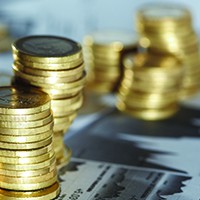Last updated: June 06 2017
Taxes on Rich Can be Unfair for Everyone

In answer to the question posed in Knowledge Bureau’s May opinion poll, professional financial advisors from across Canada agreed by an overwhelming majority—78% to 22%—that top marginal tax rates close to, or over, 50% are not fair.
The Fraser Institute shares this concern, pointing out that high marginal tax rates have a negative effect on economic activity and prosperity because they reduce the incentive to earn more income from personal productivity. “The fact that Canada’s top tax rates are often applied to lower levels of income than is the case in other countries further erodes our tax competitiveness,” said the B.C.-based think tank in March of 2016, just after top federal rates rose to 33% on incomes over $200,000. “The tax increases are unlikely to raise as much revenue as governments expect since taxpayers—particularly upper-income earners—tend to change their behaviour in response to higher tax rates in ways that reduce the amount of tax they might pay.”
Here’s what our readers said as they answered our poll:
Martin: People work hard for their income. The government should never get a larger share of it than the person doing the work. Right now, even though higher earners have higher tax brackets, there are numerous ways the total tax can be reduced for the highest earners, such as income splitting, the use of corporations, trusts, etc. But tax rates near or exceeding half of what a person earns are not fair.
Shum agreed: It’s not easy to live here when the cost of living is so high and the GST and PST and other unknown taxes are deducted from our income that has already been taxed at almost 50%.
So did Dan, but he speaks to the other side of the ledger, too: There’s something fundamentally wrong in a capitalist society when income tax takes more than 50% of income—at any level. But, then again, I think there should be caps on government spending (as a percentage of the economy) to put as much energy into reallocating wasted spending as there is finding new ways to spend. That way, the government keeps focused on growing our economy to keep increasing its budget. The only time the government should be able to go into debt is to build long-term infrastructure.
Alan looked globally for examples: No government should be entitled to half of anyone’s work. It’s a socialist’s dream. Check with the Venezuelans to see how that turned out for them. We need smaller government and lower taxes. Fewer politicians, fewer civil servants and more private enterprise, where the economy actually begins and exists. The government’s job should be to stay out of the way of the people who create the wealth that we live on.
Rob was more direct: Collectively we pay well over 50% in taxes of all kinds. The government wastes our money. How is that fair? What do we get for our money? There is no value to the average person for all that we give them.
Andrew also looked at the full tax burden in his comment: I’d like to hear from the voters who say YES, this is fair. Please add, in addition to the combined provincial and federal rate: GST (HST), PST, property tax, land transfer tax, sin taxes…shall we continue? When does it end? How much is too much?
Here's Virginia’s take: If the taxman gets too greedy it will backfire; the rich can afford to emigrate and pay nothing more here. It is also unfair that a couple with unequal incomes pays a lot more tax than a couple with equal incomes. The family tax cut attempted to mitigate that. I was sorry to see it go.
Brian looks down the road further: The question relates to income taxes and, yes, I believe that they are far too high. The more taxes that people pay, the less they have for investment; and with less investment there is less economic growth. I would rather see a flat income tax of, say, 25% on all personal income over $25,000. The first $25,000 should be a tax-free zone to encourage people to work and afford the very basics in life without ending up in poverty.
Here's Don’s opinion: We hear lots of opinions of the high cost of living here in Vancouver and other cities; however, I never hear of the biggest contributor to that cost: the cost of government. I calculate that out of every dollar I have in income, very close to 75% of it is spent on taxes, government fees, premiums, excess hydro cost, excess car insurance premiums, employment insurance fee and government clawbacks.
Diane says: I would like to see a more even playing field for tax rates. There is little incentive for a single-parent family, or lower-income families capable of working, to get a higher paying or additional income.
Brian is worried: The financial divide between the rich and the so-called middle class gets worse every year and it is tearing our society apart. Capitalistic competition and consumption is failing us and I fear it will be the death of the social order we all are trying to hold on to!
Malcolm thinks it depends on what those tax dollars buy: How about healthcare at 50% of the no-tax option. How about prescription drugs à la New Zealand? Would I rather pay another dollar in taxes or another $4 or $5 in prescription costs? I wonder.
Sarah says it’s absolutely not fair to pay more than half! Taxes are of major concern for Canadian families, amounting to a significant, and sometimes overwhelming, portion of family income. Considering income tax was introduced in the 20th century as a temporary measure, it’s time to re-evaluate the practice!
Thanks to all who participated. Please join us for this month’s poll: Do you think Canadian provinces should raise the minimum wage to $15?
©2017 Knowledge Bureau Inc. All Rights Reserved.





